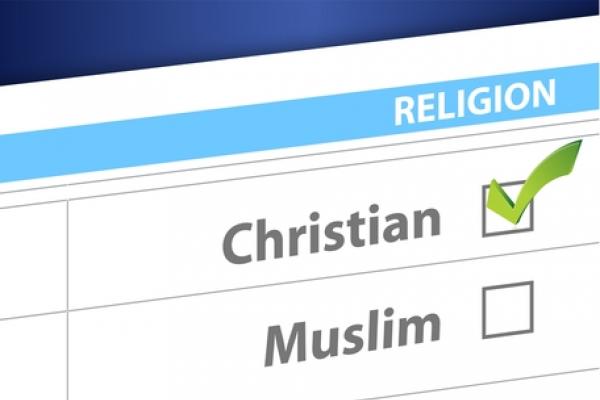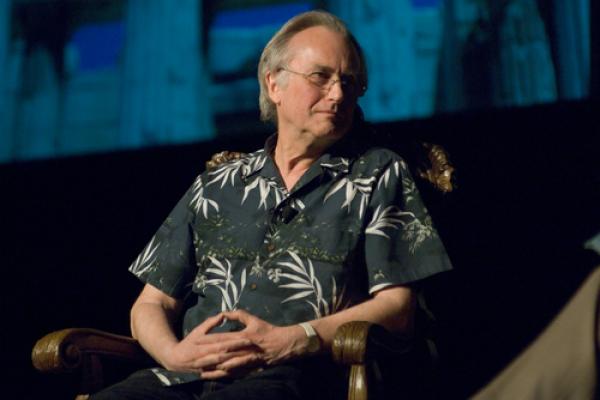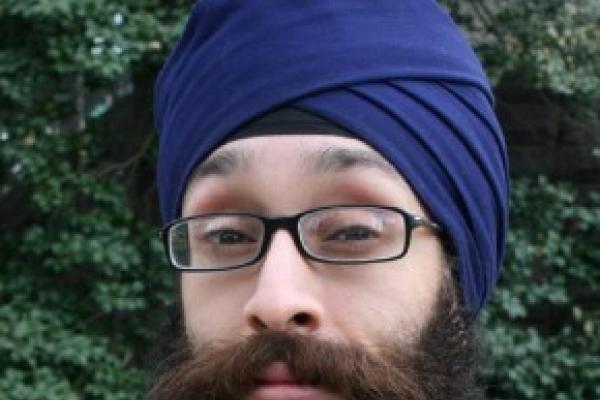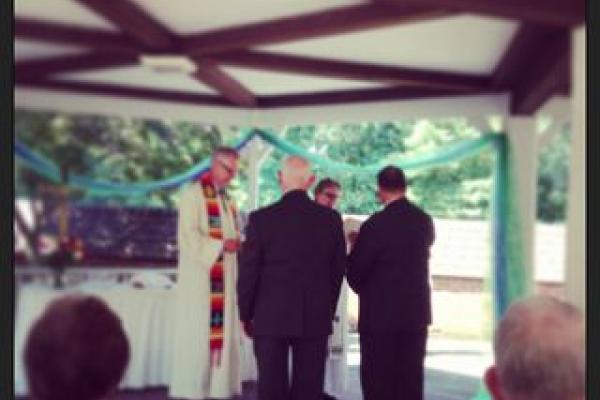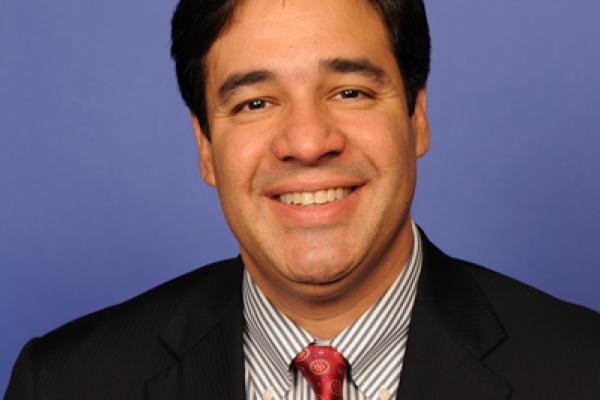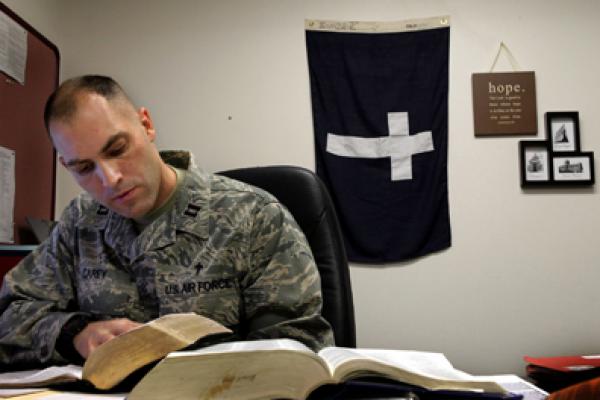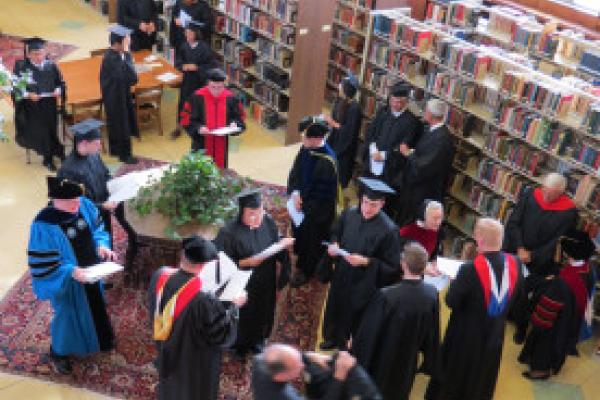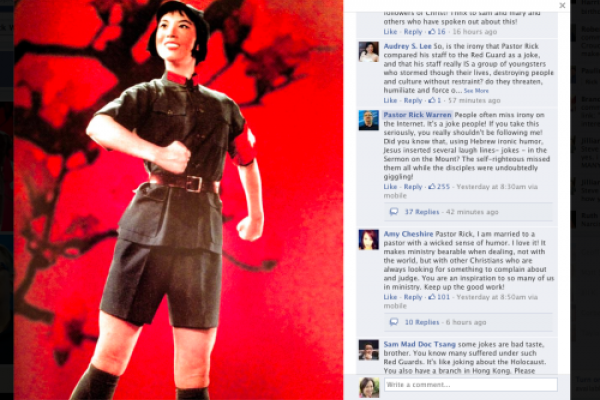“Don’t ask yourself what the world needs; ask yourself what makes you come alive, and then go do it. Because what the world needs is people who have come alive.” - Howard Thurman + Sign up to receive our quote of the day via e-mail
There is an old Christian hymn that has the lyrics "They'll know we are Christians by our love." It was written in the late 60s and was inspired by the Bible verse John 13:35, where Jesus says, "By this everyone will know that you are my disciples, if you love one another." (NIV)
Really? We're supposed to be able to tell the difference between Christians and non-Christians? And the difference is love?!
In reality, it's not nearly that simple, and the fact is, there’s no visible difference.
If you were to go to the grocery store, a football game, the gym, a school, or your work, there would be no obvious way of identifying — through actions — who is a Christian and who isn't, and we should be careful not to judge.
Some of the kindest, nicest, authentic, and wonderful people I know don't believe in Jesus. Contrarily, there are some horrible, mean, and downright disgusting Christians.
First things first: with all due respect to interim host John Oliver, I for one am thrilled to have Jon Stewart back on The Daily Show. I know it is sad to say, but I actually missed him while he was on summer hiatus. Welcome back, little buddy!
Last night, Stewart interviewed Richard Dawkins, author of The God Delusion, who was promoting his newest title, An Appetite for Wonder. The most interesting moments in the interview revolved around Stewart’s question to Dawkins about whether science or religion ultimately would be responsible for hastening our journey down this path of apparent self-annihilation. What followed was a fascinating, if not entirely satisfying, dialogue about the “downsides” of both disciplines.
Shortly after teenagers beat up a Columbia University physician Saturday, a Muslim woman was attacked a few blocks away.
It is not clear whether the attacks on Dr. Prabhjot Singh and the Muslim woman, who were both treated at Mount Sinai Hospital in New York, are related. But many say the motives, if not the perpetrators, are depressingly familiar.
They are part of a long line of assaults on Sikhs, who are sometimes mistaken for Muslims; on Muslims; and, more generally, on people perceived as foreigners.
Facing a wave of open defiance to church law, the top court of the United Methodist Church is set to consider rulings challenging church teaching on homosexuality.
The United Methodist Judicial Council will decide whether church ministries can advocate for the acceptance of homosexuality, whether ministers can officiate at same-sex ceremonies, and whether a regional conference can urge members to ignore portions of Methodist law.
The rulings made by regional conferences are among 17 items the court will consider at its Oct. 23-26 meeting in Baltimore.
Conservatives are rallying around a House bill designed to protect religious people who advocate for traditional marriage — a belief, they say, that is held in increasing contempt.
But supporters of same-sex marriage say the bill actually protects the discriminators — individuals and nonprofits that would deny gay people benefits or services simply because they are married to a same-sex partner.
More than 60 House members — mostly (but not all) Republican — have signed on to the Marriage and Religious Freedom Act, which was introduced Sept. 19 by Rep. Raul Labrador, R-Idaho, who came to Congress in 2010 on a wave of support from the conservative Tea Party.
Catholic military chaplains cannot be forced to witness or bless a same-sex marriage, nor are they allowed to take part in any marriage counseling retreats that are open to gay couples under new rules issued by the Archdiocese for the Military Services.
The rules, sent to chaplains on Sept. 18 by Archbishop Timothy P. Broglio, head of the AMS, also bar chaplains from taking part in a funeral for a Catholic if that participation “would give the impression that the church approves of same sex ‘marital’ relationships.”
But the new rules also set out conditions that would allow Catholic military commanders to comply, without violating their beliefs, with rules giving same-sex couples under their command federal employee benefits as required by law.
After decades of glum trends — fewer priests, fewer parishes — the Catholic Church in the United States has a new statistic to cheer: More men are now enrolled in graduate-level seminaries, the main pipeline to the priesthood, than in nearly two decades.
This year’s tally of 3,694 graduate theology students represents a 16 percent increase since 1995 and a 10 percent jump since 2005, according to Georgetown University’s Center for Applied Research in the Apostolate (CARA).
Seminary directors cite more encouragement from bishops and parishes, the draw of Pope Emeritus Benedict XVI and the social-justice-minded Pope Francis, and a growing sense that the church is past the corrosive impact of the sexual abuse crisis that exploded in 2002.
Author's Note: As of sometime Tuesday afternoon, the original Facebook post and tweet of this image has been removed. That is wonderful news. He has also issued an apology on Dr. Sam Tsang’s blog (linked later in this post) but not on his Facebook page or Twitter because it has all been removed. However, I am leaving up my original post because deleting something doesn’t actually address the issue, and the subsequent comments by supporters were never addressed. Those supporters may think the post was removed because he got tired of the angry Asians who don’t get it. Right now, it feels like I’ve been silenced. Pastor Warren actually did read many of the comments voicing concern about the post and responded with a rather ungracious response. My kids constantly hear me talk about the consequences of posting something up on social media and the permanence of that.
You know it’s going to be an interesting day when you wake up to Facebook tags and messages about “something you would blog about.”
My dear readers, you know me too well.
This photo appeared yesterday on Rick Warren’s Facebook page and Twitter feed. Apparently the image captures “the typical attitude of Saddleback Staff as they start work each day.” Hmmm. I didn’t realize Saddleback was akin to the Red Army. Warren’s defense (and that of his supporters) is one that I AM SO SICK AND TIRED OF HEARING!
